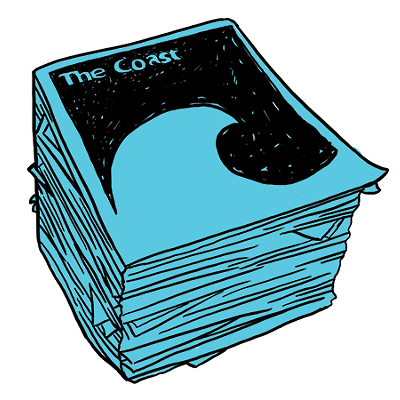Ocean notion Scientists warn us that greenhouse gases are adversely impacting our planet's oceans. Nova Scotia is surrounded by ocean. Our way of life is especially dependent upon it. It follows that adverse changes to the oceans threaten our well-being.
Rising temperatures have already caused our sea levels to rise one foot in the last 120 years. If GHG emissions remain unchecked, the sea levels are estimated to rise an additional six feet in the next 85 years. Imagine the devastating effect this will have on the built environment on our shores.
The additional CO2 that has been absorbed by our oceans has caused them to become 30 percent more acidic than they were 200 years ago. This percentage continues to rise. The resulting harm this brings to our marine life is beyond comprehension.
What are we to do about these kinds of harmful changes? Redoubling our efforts to reduce our individual greenhouse gas footprint is an obvious first step. Encouraging our families, friends and neighbours to do the same multiplies the impact. These efforts will drive corporate and government action. Only by building an ever-growing groundswell of serious GHG-reducing actions will GHG levels drop and the dangers lessen. Everyone's actions are important if we are to preserve our highly valued and impressive Nova Scotian way of life. —Ron Scott, Halifax
Sacred water We need to listen to our elders, who know how to protect our sacred land and ways of being self-sufficient with nature. Nothing is sacred if we ignore the fact that Indigenous people across Canada are STILL without clean fresh drinking water in 2017. The issue has been ongoing for years, and as part of a younger generation in the Maritimes, it hurts to see.
The Potlotek First Nation in Cape Breton has protested dirty water and health problems for years, with promises for a new treatment plant but little action taking effect. We in Canada need to stop putting money at the expense of human life. Water is sacred, and any government which fails to recognize that forfeits its legitimacy. We need ecological balance to sustain freedom. How can we go for years without supporting and ignoring the basic human rights of people? We living beings are all part of earth life and must stand together to protect and sustain our permaculture. —Samantha902, Halifax
Waiting for a bus, getting excuses Two Saturdays in a row, I froze my ass off waiting for the number 1 bus for an inordinately long time. I complained to 311 three times, and got one phone message back from Blain Dhooge, customer service advisor for Metro Transit, until an email landed in my inbox yesterday after I wrote to the mayor and councillor Waye Mason.
In this email, Dhooge quoted a representative of the Operations Department of Metro Transit as saying: "With the Macdonald Bridge closure on the weekends, no shuttle buses and the routes 1, 10, 52, and 61 forced to detour over the MacKay bridge—the schedule adherence for the route 1 is literally out the window. This past Saturday, 7 standby buses were out and were used most of the day dealing with change-offs and maintenance issues. Due to the lack of available buses and manpower, until the bridge closures are over, schedule adherence for the route 1 will continue to be a mess on weekends."
Dhooge continued, "I know that these delays are very frustrating. The bridge closures have created a lot of challenges for our service, and we have been trying to accommodate the closures as best as possible. Unfortunately with the Bridge Commission continually extending the bridge closures, it has been pushing our ability to provide efficient service to its limits."
So the answer is to blame it on the Bridge Commission? That's great and all, especially since this phase of The Big Lift ended on the weekend, and with it the closures—at least for a few weeks. But I wonder if Halifax took public transit seriously, this wouldn't be happening. —Anna Quon, Halifax
















